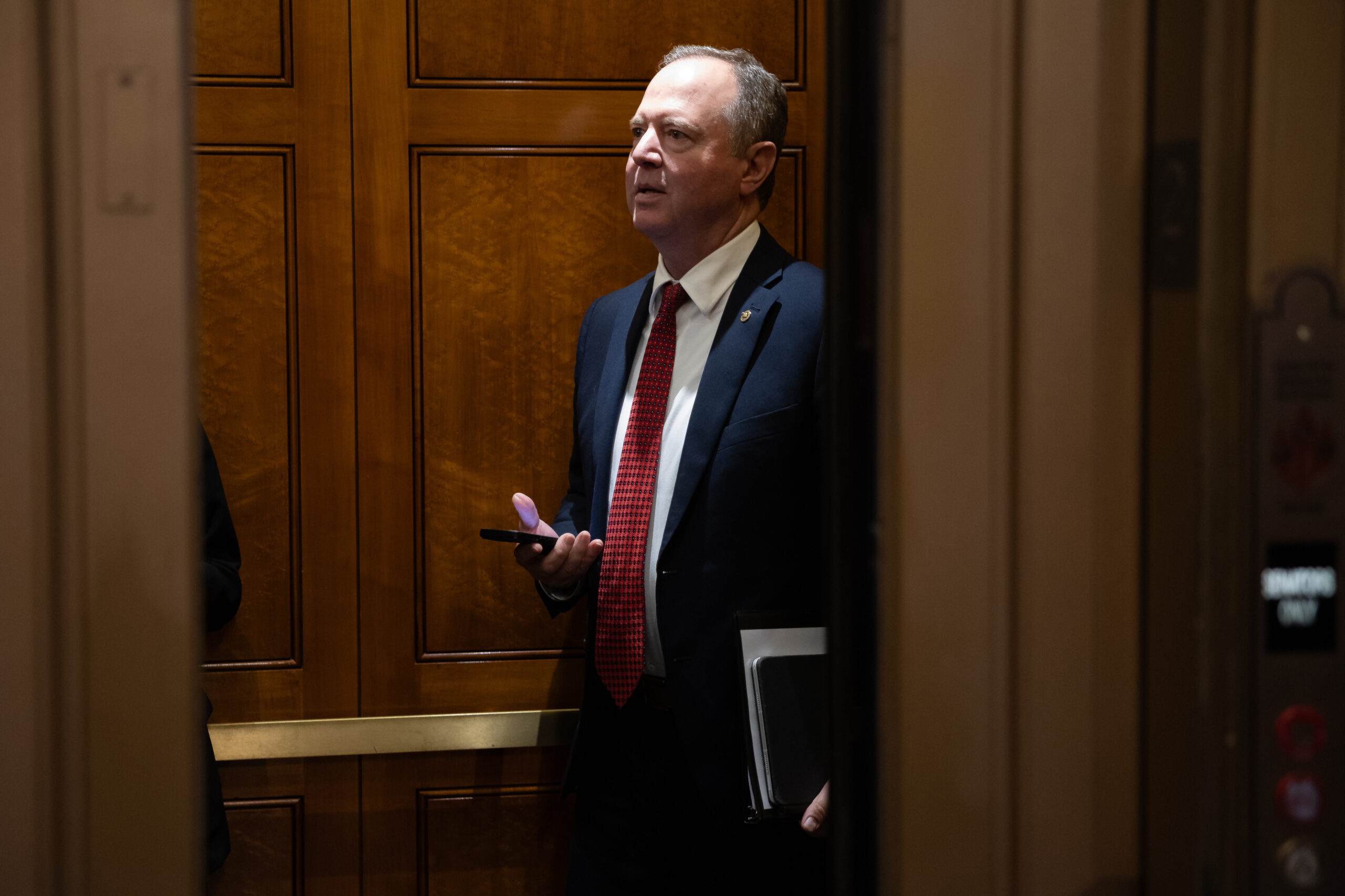Politics
Adam Schiff’s Potential Indictment: A Game-Changer for the Senate

The potential indictment of Adam Schiff, a prominent Democrat from California, represents a significant moment in U.S. politics. Should legal proceedings against him proceed, it would mark the first time that former President Donald Trump‘s pursuit of political adversaries has directly impacted a sitting member of the Senate. This situation raises critical questions about the implications for both Schiff and the broader political landscape.
The investigation into Schiff stems from allegations related to his activities during the Trump administration, particularly regarding his role in the impeachment inquiries. Trump’s legal team has been vocal about targeting Schiff, viewing him as a key figure in their narrative against perceived political persecution. The legal ramifications could have far-reaching effects, not just for Schiff but also for his party and the Senate’s composition.
Implications for the Senate and Political Climate
If Schiff faces indictment, it could create a ripple effect within the Senate. The repercussions would likely influence party dynamics, campaign strategies, and public perception. With Schiff currently serving as the ranking member of the House Intelligence Committee, his situation bears significant weight. His absence from the Senate could shift the balance of power, particularly as the 2024 elections approach.
Political analysts suggest that the timing of this potential indictment is crucial. As the Senate prepares for a pivotal election year, the fallout could reshape how candidates approach their campaigns. The indictment might galvanize Schiff’s supporters while simultaneously energizing Trump’s base, creating a charged atmosphere leading into the elections.
Public and Political Reactions
Public reaction to the news has been mixed. Supporters of Schiff argue that the indictment represents a politically motivated attack, while opponents believe it underscores a failure to uphold ethical standards in office. This dichotomy mirrors the broader polarization within U.S. politics, where partisan lines often dictate perceptions of justice and accountability.
Statements from various political figures reflect this divide. Some Democrats have expressed solidarity with Schiff, framing the indictment as part of a broader trend of political targeting. Conversely, Republican leaders have applauded the investigation, viewing it as a necessary step toward accountability.
As the situation develops, all eyes will be on the legal proceedings and their potential outcomes. The unfolding events could not only determine Schiff’s future but also signal a shift in the political landscape as the nation heads into a crucial election cycle. The intersection of law and politics in this case serves as a reminder of the continuing complexities surrounding governance in the United States.
This scenario highlights the intricate balance of power and the often tumultuous relationship between political figures and the legal system. The implications of Schiff’s potential indictment could resonate beyond the Senate chambers, affecting voter sentiment and party strategies for years to come.
-

 World3 weeks ago
World3 weeks agoGlobal Air Forces Ranked by Annual Defense Budgets in 2025
-

 World3 weeks ago
World3 weeks agoMass Production of F-35 Fighter Jet Drives Down Costs
-

 Science3 weeks ago
Science3 weeks agoTime Crystals Revolutionize Quantum Computing Potential
-

 World3 weeks ago
World3 weeks agoElectrification Challenges Demand Advanced Multiphysics Modeling
-

 Top Stories3 weeks ago
Top Stories3 weeks agoNew ‘Star Trek: Voyager’ Game Demo Released, Players Test Limits
-

 Top Stories3 weeks ago
Top Stories3 weeks agoDirecTV to Launch AI-Driven Ads with User Likenesses in 2026
-

 Business3 weeks ago
Business3 weeks agoGold Investment Surge: Top Mutual Funds and ETF Alternatives
-

 Lifestyle3 weeks ago
Lifestyle3 weeks agoDiscover Reese Witherspoon’s Chic Dining Room Style for Under $25
-

 Entertainment3 weeks ago
Entertainment3 weeks agoFreeport Art Gallery Transforms Waste into Creative Masterpieces
-

 Health3 weeks ago
Health3 weeks agoGavin Newsom Critiques Trump’s Health and National Guard Plans
-

 Business3 weeks ago
Business3 weeks agoUS Government Denies Coal Lease Bid, Impacting Industry Revival Efforts
-

 Lifestyle3 weeks ago
Lifestyle3 weeks agoLia Thomas Honored with ‘Voice of Inspiration’ Award at Dodgers Event









